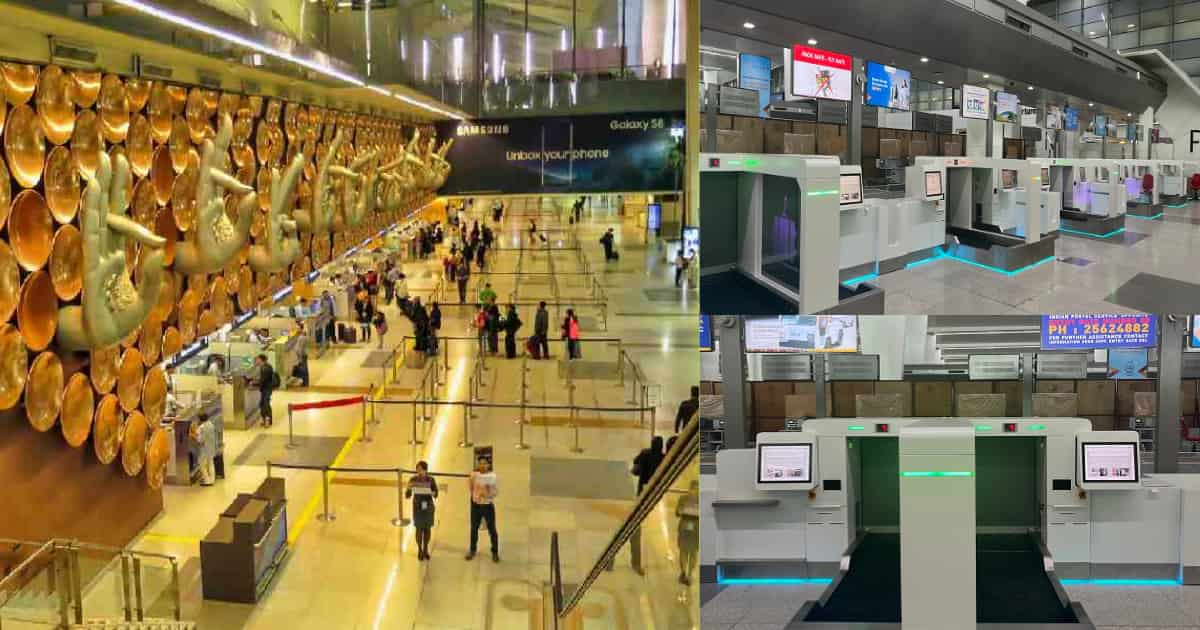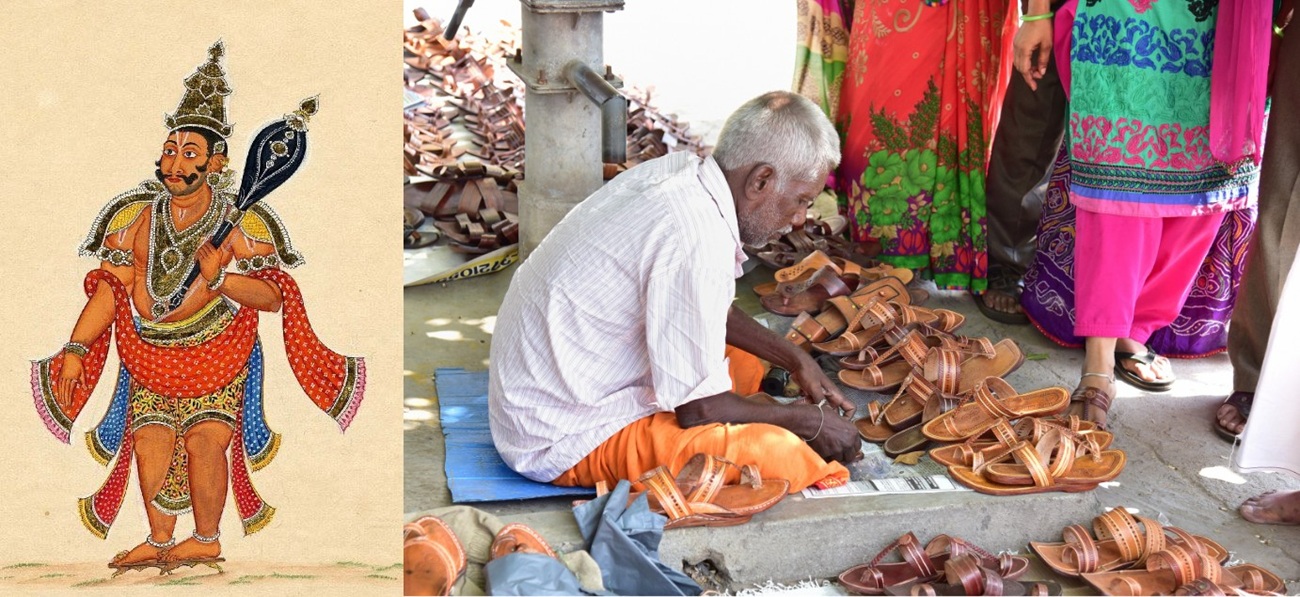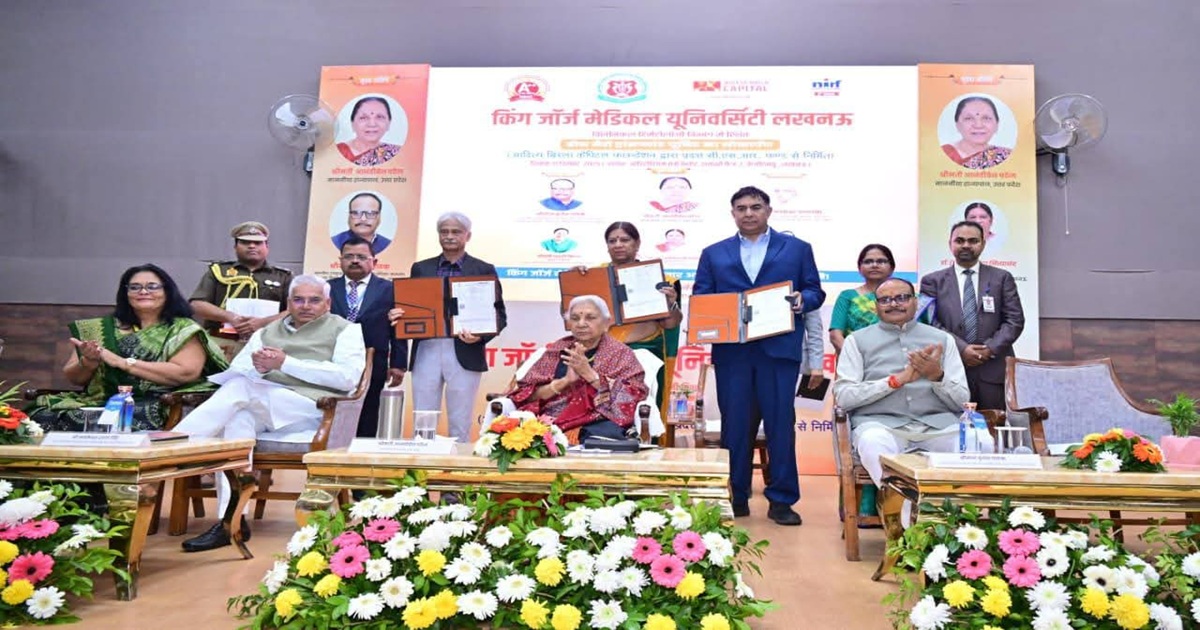
Delhi International Airport Limited (DIAL) has launched an innovative self-service system designed to revolutionise the check-in experience for passengers. This new technology aims to significantly reduce the time spent at airport counters by allowing travelers to swiftly drop off their luggage, obtain baggage tags, and print boarding passes within just 30 seconds.
According to DIAL, this initiative positions Delhi as the first airport in India and the second globally, following Toronto, to implement such advanced self-service baggage drop units. The introduction of these automated systems is set to streamline operations and enhance efficiency, benefiting airlines such as Air India, Air India Express, and IndiGo.
How the Automatic Self-Drop Baggage Machines Work?
1. Collection and Tagging:
- Passengers begin their check-in process by collecting and attaching bag tags at Common Use Self Service (CUSS) kiosks conveniently located within the airport terminals.
2. Bag Drop:
- After tagging their luggage, travellers proceed to the self-baggage drop (SBD) units where bags are placed onto a conveyor belt designated for automated processing.
3. Automated Check-in:
- With a simple click, the system opens the airline's application on the SBD machine, guiding passengers through the necessary steps.
4. Self-Declaration:
- Travellers are prompted to agree to a self-declaration form electronically, ensuring compliance with airline and regulatory requirements.
5. Validation and Processing:
- The system performs a thorough check against all relevant criteria and business rules defined by the airlines, ensuring smooth processing of baggage.
What are the Benefits of the New System?
- Efficiency: By reducing check-in times to as little as 30 seconds per passenger, the self-drop machines alleviate congestion at traditional check-in counters, improving overall airport flow and reducing wait times.
- Convenience: Travellers enjoy greater convenience and autonomy in managing their check-in process, from tagging luggage to receiving boarding passes, all in one seamless transaction.
- Accuracy and Compliance: Automated validation processes ensure that baggage meets airline standards and regulatory requirements, minimising errors and enhancing security measures.
Deployment and Accessibility
DIAL has deployed 50 self-service bag drop units across Terminal 1 and Terminal 3 of the Delhi airport, strategically located to maximise accessibility for passengers flying with Air India, Air India Express, and IndiGo. This widespread deployment aims to cater to the increasing demand for efficient airport services amidst growing passenger volumes.
Future Implications and Industry Trends
The introduction of automatic self-drop baggage machines reflects a broader trend within the aviation industry towards leveraging technology to enhance passenger experiences and operational efficiencies. As airports globally face the challenge of accommodating growing passenger traffic, streamlined processes such as these are poised to become integral to modern airport operations.
Delhi International Airport's initiative to implement automatic self-drop baggage machines marks a significant advancement in airport technology in India. By prioritizing speed, convenience, and compliance, DIAL aims to set new standards for passenger service excellence while supporting the industry's evolution towards more efficient and traveler-friendly practices. As these innovations continue to gain traction, the future of air travel promises even smoother journeys for passengers worldwide.
Popular Categories
Read More Articles
Business
D2C plant-based nutrition brand Earthful is hiring Moms to Speak on Menopause & is offering ₹1 Lakh Stipend! by Awadh 360° Desk December 15, 2025India
Appropriation vs. Appreciation: Reclaiming Indian Culture, Craft and Credit by Mohammed M. Raza December 13, 2025Politics
BJP turns to OBC leader Pankaj Chaudhary for UP top post by Awadh 360° Desk December 13, 2025Business
KGMU, Aditya Birla Capital Inaugurate State-of-the-Art BMT Ward to Transform Cancer Care in Uttar Pradesh by Awadh 360° Desk December 12, 2025



